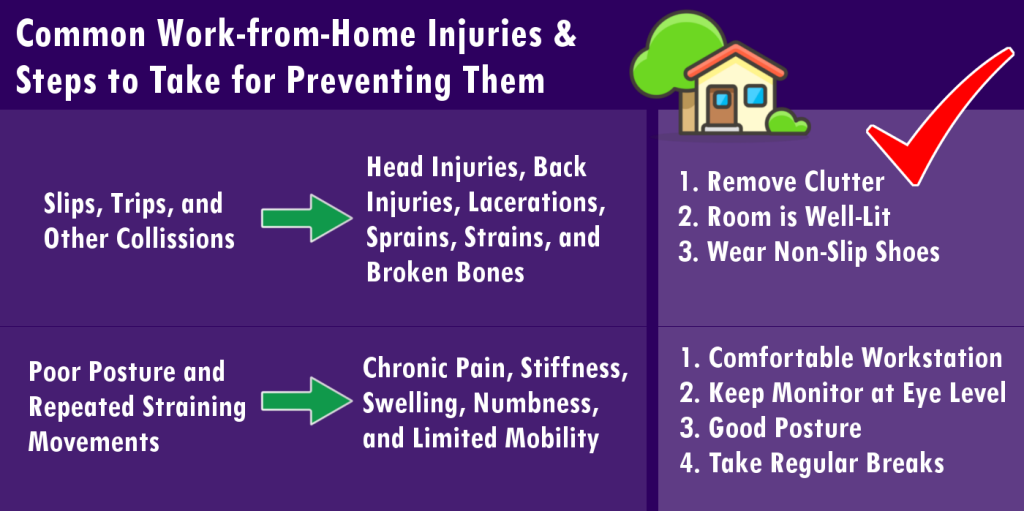- Free Consultation: 801-810-7673 Tap Here to Call Us
Workers’ Compensation When You Work from Home
An Upwork study suggests 22% of Americans will be working from home by 2025. With the rise of remote work in recent years—in part due to the Covid-19 pandemic—more people are wondering where workers’ compensation fits in. Employers and employees need to know what to do if someone gets hurt while on the job, whether the work is done at an office or remotely at a home.

Does Workers’ Comp Cover You If You Work from Home?
When employees are injured or fall ill for job-related reasons, they are entitled to workers’ compensation. This typically covers medical expenses, rehabilitation costs, and a portion of wages lost during the recovery period. This is a requirement for both those who work in a traditional office and those who work in a home office. However, remote workers need to consider some unique challenges when it comes to workers’ compensation.
When Workers’ Comp Applies to Remote Employees
Remote employees are only covered by workers’ comp if their injuries or illnesses are related to their jobs. Depending on the circumstances, a court may debate whether or not an incident is within the scope of your employment. For example, tripping over your pet in the hallway while taking a break may be deemed unrelated to work, as opposed to tripping over a wire of your work computer while addressing a technical issue. In the case of injuries, it can also be challenging for remote employees to prove that an incident occurred specifically while performing a work task.

Common Injuries for Employees Who Work from Home
A controlled workplace environment must follow a set of safety standards. Your home, meanwhile, may present a variety of hazards and distractions that you would not encounter at a regular office. Though your home is likely familiar to you, it is still worth maintaining a clear awareness of your surrounding environment. Slips, trips, and other collisions can result in head injuries, back injuries, lacerations, sprains, strains, and broken bones.
Another concern for remote workers to watch out for are repetitive stress injuries. These are cumulative injuries that build up over time, such as carpal tunnel syndrome. Some who work from home are likely to have a less ergonomic workstation than that of a traditional office. Poor posture and repeated straining movements can lead to chronic pain, stiffness, swelling, numbness, limited range of motion, and decreased mobility.
Steps to Take for Preventing Work-from-Home Injuries
Remote workers can make their home office safer by removing clutter, keeping the room well-lit, and wearing non-slip shoes. As for the workstation, set it up in a way that you can use your keyboard, mouse, and phone comfortably. Keep the monitor at eye level, sit with proper posture, and take regular breaks. Stand up and move around a bit when you can.
In the event that you are injured or suffer a job-related illness while working from home, report the incident to your employer as soon as you can. Keeping records of work hours and assigned tasks can also help support a workers’ compensation claim. In turn, an experienced workers’ compensation attorney can help ensure your claim is handled smoothly and fairly. Rose Legal can give you the legal advice you need, and then guide you through the process.







